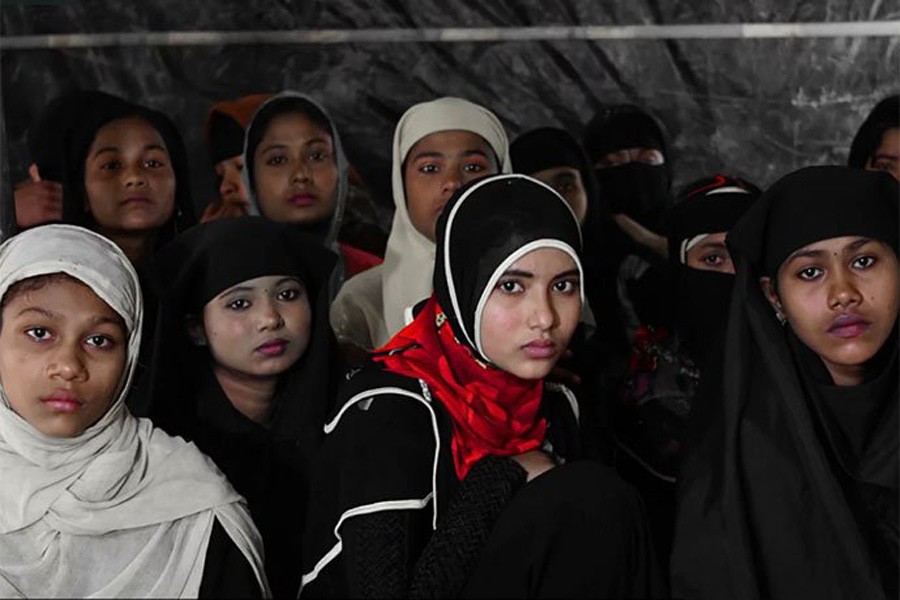Medecins Sans Frontieres (MSF) has provided treatment for 84 survivors of sexual violence at MSF’s Sexual and Reproductive Health Unit in Kutupalong.
More than 90 per cent of the survivors are Rohingya women and girls who have fled Myanmar since 25 August.
Fifty per cent of survivors are under the age of 18, including several under the age of ten.
The MSF, however, on Thursday said these cases represent just a fraction of the actual number of Rohingya women and children who’ve been sexually assaulted.
Women are often reluctant to seek services, owing to a number of factors including the shame and stigma associated with sexual assault, a lack of awareness about the medical and psychological support available, and the uncertainty about what will happen if they do seek assistance, it said in a statement.
In the early stages, after fleeing from violence and trauma, survivors are also more likely to be focused on basic survival needs, including finding shelter and food.
MSF has specialised staff on the ground to treat men, women and children who are referred for treatment as a result of trauma, including sexual assault and rape.
In the coming weeks, the MSF said, as people begin to process the trauma they experienced in Myanmar, and as some of these women and girls might have become pregnant as a result of rape, MSF expects to see more SGBV survivors seeking medical care.
In a bid to ensure women, children and men are able to access medical care, including psychological treatment; MSF’s local community outreach workers are visiting the people living in the settlements in Cox’s Bazar, informing them about the free services the organisation offers, including treatment for SGBV, it said.
Outside of the medical response, improving water and sanitation is a major part of our attempts to prevent the spread of disease.
MSF has built more than 510 latrines, 105 boreholes and a gravity water supply system while trucking an average of 55 cubic metres of water to the settlements daily.
MSF is targeting its water and sanitation response in the most difficult to reach areas where the needs are greatest.
Latrine and water point construction is planned in coordination with the DPHE and other water and sanitation actors.
MSF also includes water supply and sanitation in its emergency response for new arrivals, says a UNB report.
MSF has deployed teams to arrival, transit and settlement locations to ensure that newly arrived refugees have access to safe drinking water and adequate sanitation facilities.
Between now and the end of December, MSF aims to install a total of 400 boreholes and 1,000 latrines in the Balukhali and Kutupalong Makeshift Settlements.
MSF said it is supporting the government in expanding routine vaccination in the camps through initiating vaccination for children and pregnant women at MSF facilities.
MSF staff at all health facilities will have the capacity to administer immunisation for measles and rubella, oral polio and tetanus according to national protocols.
The number of suspected measles cases has been increasing in the camps over the past weeks.
At least 566 suspected cases have been treated in MSF facilities since mid-October, and MSF inpatient departments were admitting up to 20 severe patients per day in the second week of November.
The government is conducting a measles and rubella vaccination mop-up campaign starting November 18 that will run for 12 days and aim at vaccinating a total of 336,943 children between the ages of 6 months and 15 years.
MSF will be supporting this campaign with community mobilization, site identification, logistics, and transportation of vaccines.
Every day new arrivals are coming into the camps and there are reports of several thousand Rohingyas who remain stranded on the beach in Myanmar, desperately looking for a way to flee into Bangladesh, the MSF observed.
Matching the influx of people crossing over the border from Myanmar, MSF said it has treated more than 67,169 patients in the Cox’s Bazar area.


